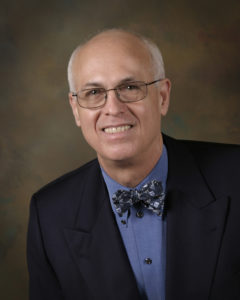MATTER Member Profile: Dr. Richard Vazquez, SafeStart

Just as aircraft pilots go through a preflight checklist prior to takeoff, so, too, are surgeons expected to review the WHO Surgical Safety Checklist prior to a skin incision. The 19-item list of best pre-op practices developed by the World Health Organization, in association with the Harvard School of Public Health, is intended to prevent the occurrence of so-called “never events,” largely preventable incidents such as operating on the wrong person, the wrong site, or performing the wrong surgery on the right person. It is standard practice to verify the patient’s identity, site of procedure, confirm consent, and gather other critical information in the minutes immediately before surgery starts.
Unfortunately, paper checklists are failing surgical teams because they are often misplaced, forgotten, or carried out by memory — if done at all — resulting in more than 4,000 surgical ‘never events’ being reported in the United States in 2013 alone, according to one study. “It’s like doing the checklist as the plane speeds down the runway,” says Dr. Vazquez. “It puts everybody — the patient, the doctor, the nurses — under too much stress and sets them up for possible failure. By starting the surgical safety process earlier in the surgical patient care process, it’s much easier to prevent ‘never events’ from occurring.”
Thankfully, Dr. Vazquez, MD, FACS, has re-engineered the surgical safety system via SafeStart, a tablet application for surgeons and surgical facilities that permits patients to participate in the creation of their own pre-surgery checklist.
Dr. Vazquez has been a surgeon since 1974, specializing in venous disorders and minimally invasive general surgical procedures. In 2012, after teaching several master’s lecture courses on OR surgical safety for the Society of Laparoendoscopic Surgeons, Dr. Vazquez decided to work toward eliminating harmful and costly handoff and communication mistakes that lead to such never events.
According to Dr. Vazquez, enhanced OR safety is a matter of documenting every detail along the way before an upcoming procedure and keeping patients in the loop. That’s why SafeStart data starts being collected when the surgeon first meets the patient.
Imagine you’re having joint replacement surgery on your right knee. With SafeStart, the doctor or physician assistant will come in the office or clinic with an iPad, take a photograph of your face, and another of your right knee in the same position it will be on the operating table, marking it. He or she will then take a photo of your signed surgical consent form — a pain point for surgical facilities that frequently lose paper copies — and SafeStart will seamlessly upload it to the cloud. Later, you login to SafeStart’s website and verify everything. When the data collected by SafeStart and the patient’s electronic medical records align, the surgeon can confidently and securely proceed with the operation.
“Today, surgical patients are treated like mushrooms: they’re kept in the dark. It’s not right,” continues Dr. Vazquez, who is a big proponent of patient empowerment. “By getting the patient involved early, they understand the process and are a big part of the surgical safety process, rather than in an occurrence of an error.”
The SafeStart tablet app won a 2013 Innovation of the Year Award from the Society of Laparoendoscopic Surgeons.
Plans include the SafeStart Institutional Review Board (IRB) project about to start at the Northwestern Medicine Orthopedic Institute Lavin Pavilion that will study patient satisfaction with the surgical safety process and time to completion of the anesthetic block. Another IRB study expected to start this coming quarter at OSF’s Children’s Hospital of Illinois will examine how SafeStart improves parent satisfaction with the surgical safety process. A pilot at Northwestern Medicine Central DuPage Cadence hospital is anticipated this coming quarter and other pilots are in the exploratory phase of discussion.
In addition to scaling the product, the SafeStart team is looking to develop an Android version and eventually to go global — even into impoverished countries. For more information on Dr. Richard Vazquez, visit his website or connect with him on LinkedIn.

